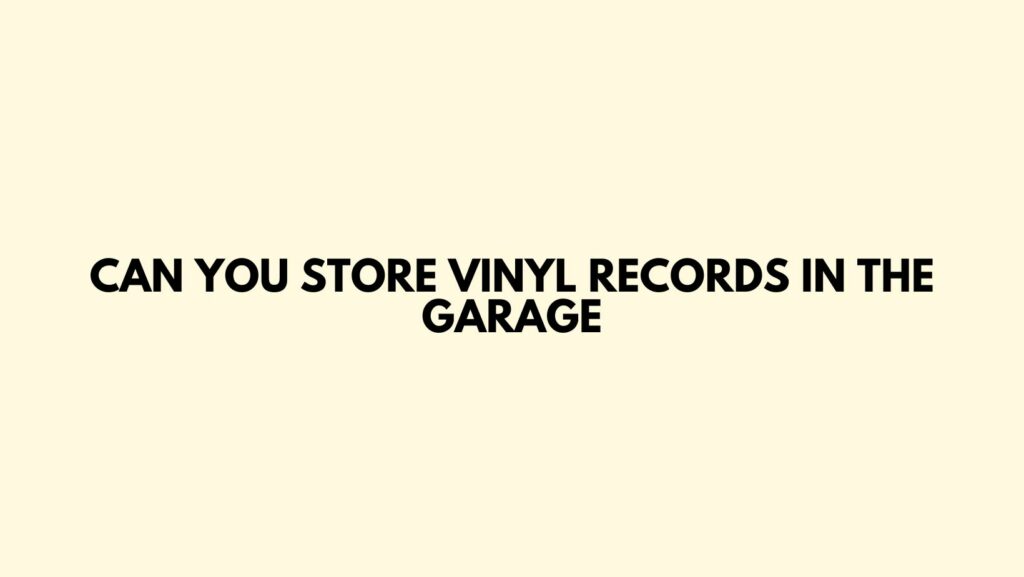Vinyl records, with their warm analog sound and nostalgic charm, are treasured artifacts for enthusiasts and collectors. When considering storage options for a vinyl collection, the garage may seem like a convenient space, but it comes with unique challenges. In this article, we’ll explore the possibilities and potential pitfalls of storing vinyl records in the garage, offering insights into how to strike a balance between convenience and the preservation of your cherished musical treasures.
The Challenges of Garage Storage:
- Temperature Fluctuations: Garages are notorious for experiencing temperature fluctuations, ranging from scorching heat in the summer to chilly cold in the winter. Extreme temperatures can lead to warping, distortion, and degradation of both vinyl records and their sleeves.
- Humidity Concerns: Garages are typically less insulated and more prone to humidity variations compared to the controlled environments inside a home. High humidity can lead to mold growth, while low humidity can cause records and sleeves to become brittle.
- Dust and Debris: Garages are often exposed to dust, dirt, and debris, which pose a risk to the cleanliness of vinyl records. Accumulated dust can result in surface scratches and compromise sound quality.
- Limited Climate Control: Unlike the interior of a home, garages usually lack proper climate control. This absence of insulation and temperature regulation can expose vinyl records to harsh environmental conditions.
Mitigating Risks and Ensuring Preservation:
- Climate-Controlled Storage Bins: Invest in climate-controlled storage bins for vinyl records. These bins provide insulation against temperature fluctuations and humidity variations, offering a protective environment for your collection.
- Inner and Outer Sleeves: Place records in anti-static, poly-lined inner sleeves to protect them from dust and scratches. Additionally, use outer sleeves made of polyethylene or polypropylene to shield album covers from environmental elements.
- Elevate Storage: Elevate storage bins or shelves off the garage floor to prevent potential exposure to moisture in case of spills or flooding. Keeping records at an elevated level adds an extra layer of protection.
- Temperature Monitoring: Consider using temperature and humidity monitoring devices in the garage. This helps you stay informed about environmental conditions and take proactive measures to mitigate potential risks.
- Regular Inspection: Conduct regular inspections of your vinyl collection in the garage. Check for signs of warping, mold, or damage, and address any issues promptly to prevent further deterioration.
- Selective Storage: Consider storing duplicates or less valuable records in the garage while keeping more prized or delicate items inside the home. This selective approach minimizes the risk to your most cherished vinyl.
- Rotate Records: Periodically rotate the records stored in the garage with those kept indoors. This practice ensures that all records receive some exposure to a more controlled environment, mitigating the impact of extended storage in the garage.
Conclusion:
Storing vinyl records in the garage requires a thoughtful approach that balances convenience with the preservation of your musical treasures. By implementing these strategies, vinyl enthusiasts can enjoy the practicality of garage storage while safeguarding the integrity and longevity of their cherished collections. As guardians of analog history, it’s crucial to ensure that each vinyl record continues to deliver the timeless magic of sound for years to come.


